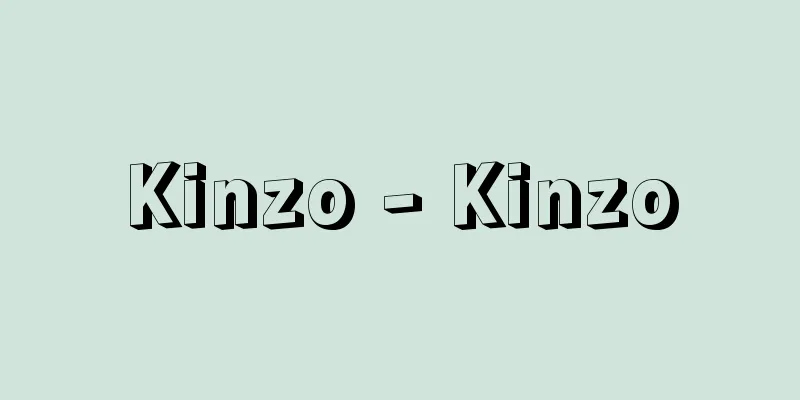Hokitika - Hokitika (English spelling)

|
A city in the mid-west of New Zealand's South Island. Population 3,087 (2001). A coal shipping port located at the mouth of the Hokitika River. It prospered during the gold rush of 1864, and at one time had a population of 50,000. It is also known as a summer resort with scenic spots such as Lake Mahinapua. The name means "I'll be back soon" in Maori. [Takashi Asagiya] Source: Shogakukan Encyclopedia Nipponica About Encyclopedia Nipponica Information | Legend |
|
ニュージーランド南島中西部の都市。人口3087(2001)。ホキティカ川河口に位置する石炭の積出し港。1864年のゴールド・ラッシュで栄え、一時人口5万を数えた。マヒナプア湖などの景勝地を控えた避暑地としても知られる。名称はマオリ語で「すぐ帰る」の意。 [浅黄谷剛寛] 出典 小学館 日本大百科全書(ニッポニカ)日本大百科全書(ニッポニカ)について 情報 | 凡例 |
>>: Bauxite (English spelling)
Recommend
Wagon
One of the Japanese zither-family string instrume...
Gymnastique - Gymnastique
…It was in the first half of the 19th century tha...
Takeo Fujii - Fujiichikugai
A Chinese poet of the late Edo period. His given ...
Kinmonga - Kinmonga
A moth belonging to the order Lepidoptera and the...
Demon theory - Kishinron
Arai Hakuseki's religious treatise. Published ...
Sword Dance - Tachiodori
A dance performed with swords. It is found in the...
Gebsattel, V. von (English spelling)
According to classical psychoanalytic theory, sad...
Underground film - Underground film
This refers to privately produced, non-commercial ...
Astyanax
A character in Greek mythology. He was the only so...
Bachelor - John Batchelor
British missionary and Ainu researcher. Born in A...
Kokufu ruins
<br /> The remains of the provincial capital...
Mineral processing - Senko
Processing ores that are composed of several mine...
"Eho Taikouki"
Other frequently performed plays include the sixt...
Tomokichi Fukurai
Psychologist. Born in Gifu Prefecture. Studied at...
Variety meal - Variety meal
…The rice that was made thicker by adding such in...









